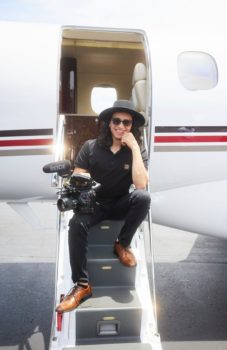
Richard Alvarenga-Lopez teaches photography classes at the DMACC Ankeny campus.
Richard Alvarenga-Lopez is 24 years old, and as he says, “living the dream right now.” Richard teaches the Photoshop classes for DMACC’s Photography program. He plans on moving more into the art world, focusing more on community issues. Not all about himself, but rather giving back and hopefully inspire the next generation as well, whether that be through painting, through drawing, through photography or video.
Why did you decide to become a photographer?
Photography has always been an interest of mine ever since high school. I remember there was this one photo, and it’s how Canon got me, it was a water droplet photo. That was the photo that like, “Man, I want to take that photo with this camera,” I need this camera. So then I somehow convinced my mom to give me $1,000 camera for my birthday. And she got it for me. And I’m really glad she did. Later that year, I ended up taking photography as a high schooler. At the time, I was like, “I hate film”, because it takes so long for you to see results. But then later on, I really appreciate film now.
Where did you go to school?
Hoover high school. I started there with just a basic black and white [class], and then their digital. And then from there Central Campus, I took a summer class with David Purdy in Commercial I. And all my credits transferred over. Then DMACC was my post high school, secondary education. And I got my degree in photography, which I was part of the very first class to get our associate’s degree, since it was a fairly new program for DMACC in 2016.
Why did you become an adjunct here at DMACC?
The opportunity arose for me to start teaching. And I took the gig which was very big for me at the time, especially being so young. [I was] teaching people that were much much older than me. I think it was at first class I had an 84-year-old man who absolutely loved him and he was one of my greatest students. I’d say the most rewarding part is just watching students grow over time and then just be very creative with it.
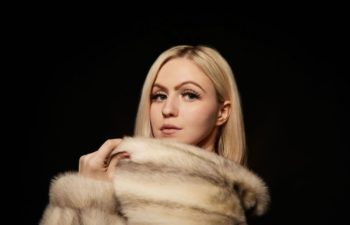 How did you get good at photography?
How did you get good at photography?
Consistency. I’d say I was never the best, even now. I was never really the hot shot that was like, “Yeah, first place, best show,” [I] never got that ribbon. Consistency of just shooting, shooting, shooting, even during the DMACC program with my students, I’d say I was probably number three or number four out of the top. But I don’t feel like I was ever the best, especially in college, where everyone was so much more mature than mine. It was very competitive, especially when I went to class. I’d say, a lot of professionals came out of 2016 [when I graduated] and 2017. But yeah, that high quality kind of work and just surrounding yourself around those kinds of artists as well really helped me push myself forward. But I’d say just over time, you just get better at it, you get used to it.
One thing I really sucked at was portrait photography; I did not know how to take portraits. DMACC really helped guide me in the path to get me started with shooting portraits. And then after the DMACC program, I was confident enough to start landing more portrait gigs. And now I’m at the point where even just yesterday I was with an engagement shoot and it was just so much fun; it didn’t feel like we’re working or taking photos, we’re just hanging out with them, and they’re laughing, and I’m laughing. They’re just cracking jokes and enjoying the sunset.
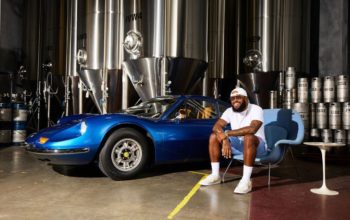 Can you describe your photography style?
Can you describe your photography style?
I’d say right now and my motto for this year: emotionally bright and dark. So, a lot of high contrast and just very dynamic lighting. I love my colors. I love my contrast. And everything is very true to color. Compared to other photographers that may lean a little bit more towards other colors, I really like having that kind of commercial mindset behind my photos. And not only that, but kind of not playing to the kind of fads.
What do you prefer to be a second shooter, a main shooter or assisting?
Depends. Like weddings, I love being the second shooter. You don’t have pressure from the wedding [and] you don’t have pressure from the bride. You’re just there taking photos, and you don’t edit anything. It’s great. Now, primary shooter, I love shooting, that’s probably going to be my favorite for sure. Mainly, it’s just because you’re there, [and] you’re involved. As for myself, I have to be involved because I’m so ADHD. And I get distracted very easily, so I have to be doing something. And with photography, it’s consistently problem solving. And that’s another aspect. I love photography so much [because]as you are solving problems there with your client, you’re getting amazing results afterwards. It’s very collaborative as well. Assisting is cool because then you’re able to see how the photographer sees everything, and how they do things. I’ve assisted over 20 photographers now and none of them have been the same. Everyone sees everything different and it’s just very cool to observe and absorb what they do. And some of these people have been in the industry for over 30 years, and how they see light, compared to someone that’s only been doing that for like five years professionally, is very different. But [it’s] also very, very cool.
What’s your favorite subject to shoot?
Cars. I love my automotive photography. That’s what I love to do. Second, from there, I’d say shooting art and artists. Very cool world.
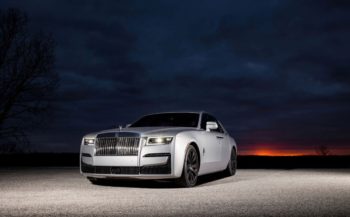 What’s the best thing about being a photographer?
What’s the best thing about being a photographer?
I’d say it has to be when especially when it comes to more like the family stuff for the wedding work, and the portraiture side of things. Being able to capture that for someone, and being able to be a person of trust, where someone can come up to you and be like, “Hey, I’m trusting you with the most important day of my life. And I’m trusting you to be able to deliver on that I need to deliver results.” And they’re just like, “I love my photos. You captured it so well.” Now talking about the more commercial side of things, I’d say that would be kind of more of the final result, like we just spent three hours to get the shot, and now it’s perfect. And we can use it and kind of that collaborative effort between the group there to change that shot.
What are your career goals?
Right now my career goal is a little bit of a shift [and] not so much photography-focused now. But moving forward with my business, [my goal would be] moving into the art world. Working on some really, really big art projects with some artists. And just being able to branch out more into traditional art, so drawing, painting, and kind of carrying my own niche within that world. I’d say moving forward, that’s what I want to lean more into rather than your typical portrait photography. That tends to be more for the ire of photographers. Also more into the fashion realm and fashion photography, and maybe move states one day.
For more of Richard’s work, visit https://alvarengaart.com/

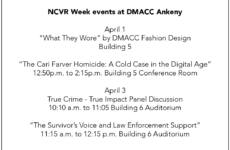
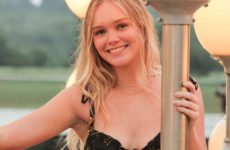


Comments